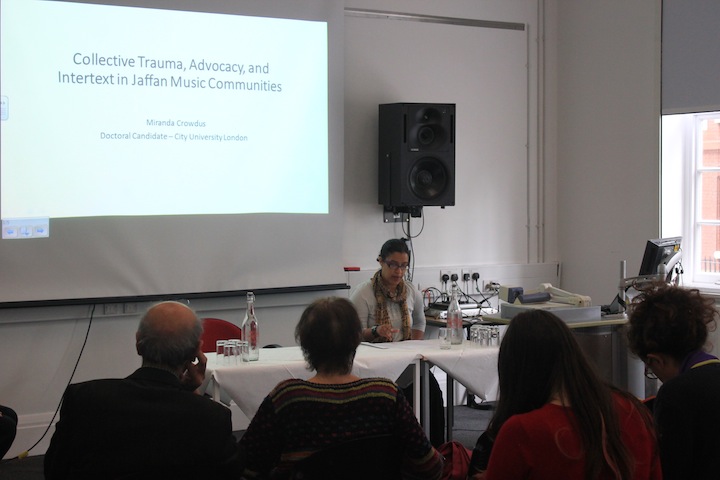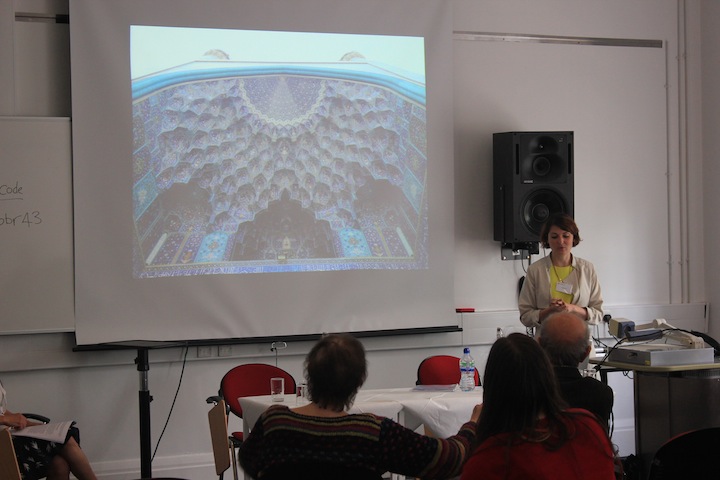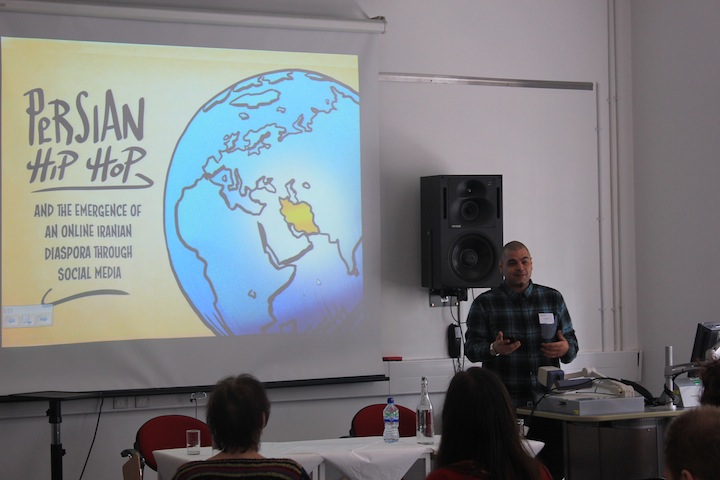The Middle East and Central Asia Music Forum took place at City University London on Tuesday May 20th 2014. The forum has been running as part of the Institute of Musical Research since 2007 and is open to researchers, students and anyone interested in the music and culture of the region. The forum provides a space for both students and more experienced researchers to present their current research in a relatively informal context.
The event was well attended with about 35 visitors, and 9 speakers from the UK and abroad presented papers on a range of musics across the region, The day began with a panel on music and conflict resolution in Israel/Palestine with speakers Antonia Baum (PhD student, SOAS) and Miranda Crowdus (PhD student, City) presenting papers entitled ‘Practising Play and Moving in Time: Musical Performances at an Israeli-Palestinian Reconciliation Gathering’ and ‘Collective Trauma, Advocacy, and Intertext in Jaffan Music Communities’.
The second morning session focused on Iran, starting with Iranian-British composer Soosan Lolavar (Trinity Laban Conservatoire of Music and Dance) talking about her recent project ‘Stay Close’ in which she collaborated with British and Middle Eastern musicians as well as running workshops in an Iranian youth centre in south-east London. The last speaker of the morning, Mehryar Golestani (aka Reveal; MMus student, SOAS), a well-known British-Iranian rapper, presented a paper on ‘Persian Hip-Hop and the Emergence of an Online Iranian Diaspora’.
The afternoon included a screening of the film Music of the Uzbeks of Northern Afghanistan, by Razia Sultanova , followed by Edward Fox (Open University) talking about the Sowt al-Khaleej music that he encountered and recorded on a recent trip to Oman. Eliot Bates (University of Birmingham) then talked about Doğa İçin Çal (literally ‘play for nature’), a 2011 Turkish crowd-sourced video series featuring hundreds of amateur and professional musicians ostensibly playing or singing for environmentalism. Through a discussion of this video series, Bates presented a reassessment of the ninety-year history of state-sponsored folklore in Turkey, and the fifty-year history of Unkapanı, the heart of the music industry located in Istanbul.
For the final session of the day, we welcomed Joseph Alagha from Haigazian University, Lebanon, talking about the use of music by Hizbullah in Lebanon (“‘Resistance Art’ as Soft Power: Hizbullah’s Music Bands”) and in the last paper of the day Stefan Williamson Fa (SOAS/The Sayat Nova Project) discussed some of the current trends in Islamic musical practice in the Northeastern Caucasus, drawing on recent fieldwork amongst Dagestani and Chechen communities in Georgia and Azerbaijan.
The day ended with a concert in the performance space – ‘Stay Close: Only Sound Remains’ – showcasing work from Soosan Lolavar’s Stay Close Contemporary Music Project.
Links:
http://www.staycloseproject.com/
http://music.sas.ac.uk/research-networks/middle-east-and-central-asia-music-forum
http://www.bbc.co.uk/news/entertainment-arts-27439043
Middle East and Central Asia Music Forum, Schedule and Abstracts (20.5.14)



